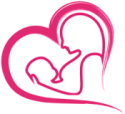Postpartum depression is a serious and common condition that can affect women after giving birth. It’s important to understand the truth about postpartum depression and know how to get help if you or a loved one is struggling.
What is postpartum depression?
Postpartum depression is a type of depression that can occur after a woman gives birth. It is more severe and lasts longer than the “baby blues,” which is a normal, temporary mood disturbance that many women experience after delivery. Symptoms of postpartum depression may include feelings of sadness, hopelessness, worthlessness, and anxiety. Women with postpartum depression may also have difficulty bonding with their baby, lose interest in activities they used to enjoy, and have trouble sleeping or eating.
It’s important to note that postpartum depression is not the same as postpartum psychosis, which is a rare but serious condition that can cause hallucinations, delusions, and other severe symptoms. If you are experiencing postpartum psychosis, it is important to seek immediate medical help.
What causes postpartum depression?
The exact cause of postpartum depression is not known, but it is likely due to a combination of physical, emotional, and social factors. Hormonal changes that occur after childbirth, such as a drop in estrogen and progesterone levels, may play a role. Stressful life events, such as a lack of support from a partner or family, financial difficulties, or a history of depression, can also increase the risk of developing postpartum depression.
How is postpartum depression treated?
Postpartum depression is a treatable condition, and the sooner it is treated, the better the outcome. Treatment for postpartum depression may include therapy, medication, or a combination of both.
Cognitive behavioral therapy (CBT) is a type of therapy that can help individuals identify and change negative thought patterns and behaviors. It can be an effective treatment for postpartum depression.
Antidepressant medication, such as selective serotonin reuptake inhibitors (SSRIs), can also be effective in treating postpartum depression. It’s important to talk to a doctor or mental health professional about the potential risks and benefits of taking medication while breastfeeding.
It’s also important for women with postpartum depression to have a strong support system. This may include a partner, family, friends, and a support group for new mothers.
How to get help for postpartum depression
If you think you may be experiencing postpartum depression, it’s important to seek help as soon as possible. Talk to your doctor or a mental health professional about your symptoms and treatment options. It’s also important to let your loved ones know what you are going through and ask for their support. Remember, postpartum depression is a treatable condition, and with the right help, you can recover and feel like yourself again.
If you are in crisis and need immediate help, call the National Suicide Prevention Lifeline at 1-800-273-TALK (8255) or seek help from a local crisis center.




